Lent and prayer
Fasting, Christians must remember that Humankind cannot accept its Beloved’s absence. This frantic loving quest for Him should lead us to seek Him where we can recognize His presence: first, within prayer, where we can converse with Him; second, within our neighbor, where we can contemplate His face.
 Of course, there are many forms of prayers. Saint Theresa of Avila taught that there was not a single method for praying. Saint Dominic or Saint Francis invited their brothers to praise the Lord in the countryside, contemplating the beauty of the Creation. Saint Ignatius of Loyola explained how to use the five senses while meditating a passage of the Scriptures, in order to force our imagination to enter the described scene. The Benedictine monks, as well as all kind of monks after them, fed their spiritual life with the Divine Office that had them sing psalms in the choir.
Of course, there are many forms of prayers. Saint Theresa of Avila taught that there was not a single method for praying. Saint Dominic or Saint Francis invited their brothers to praise the Lord in the countryside, contemplating the beauty of the Creation. Saint Ignatius of Loyola explained how to use the five senses while meditating a passage of the Scriptures, in order to force our imagination to enter the described scene. The Benedictine monks, as well as all kind of monks after them, fed their spiritual life with the Divine Office that had them sing psalms in the choir.
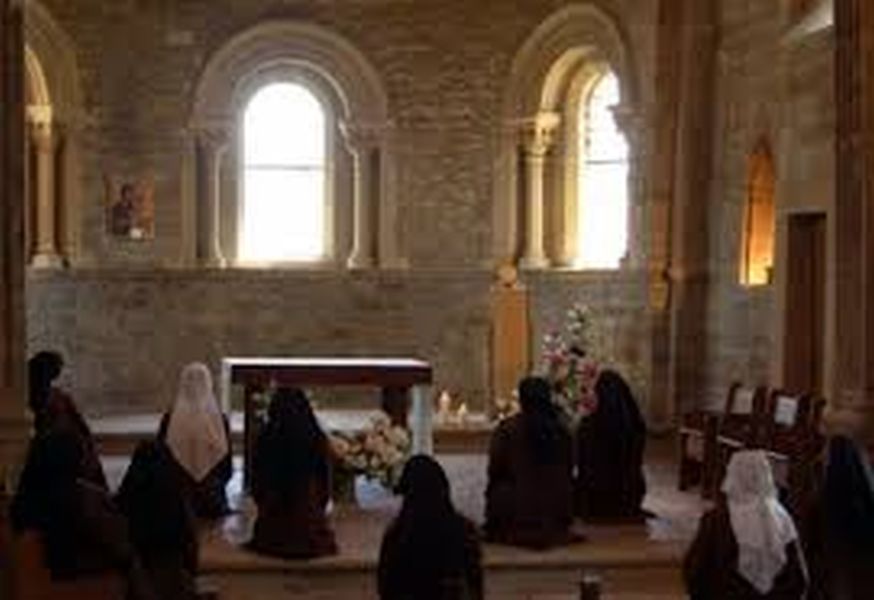
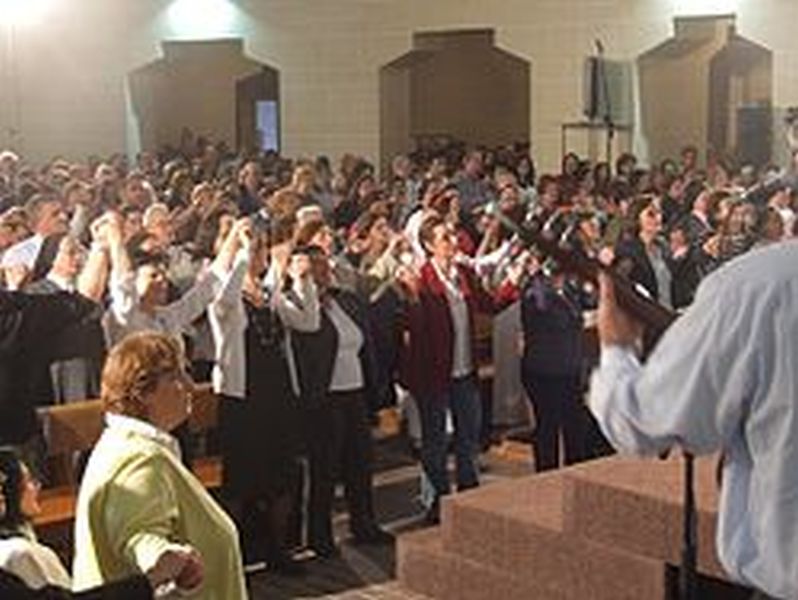 The members of Charismatic Renewal movements express praises and prayers loudly. Carmelites and Carthusians are able to establish a deep communion with God thanks to silence. The diversity of the ways for praying are attested also by the Rosary or by the heady refrain of the Russian Pilgrim, that is, the cry of the blind Bartimaeus: “Jesus, Son of David, have mercy on me.” Everyone should find his/her spiritual family, then, without giving up on the others, for, together, they show the rich diversity of the Church Tradition in this matter.
The members of Charismatic Renewal movements express praises and prayers loudly. Carmelites and Carthusians are able to establish a deep communion with God thanks to silence. The diversity of the ways for praying are attested also by the Rosary or by the heady refrain of the Russian Pilgrim, that is, the cry of the blind Bartimaeus: “Jesus, Son of David, have mercy on me.” Everyone should find his/her spiritual family, then, without giving up on the others, for, together, they show the rich diversity of the Church Tradition in this matter.
Many witnesses attest that Saint Yves kept reading the Bible. It was one of the rare books he kept with him, with a few books of Law, which he needed for his job. He studied the Bible every day, in fact at night for he was far too busy to read it during the day. His servant witnessed that, sometimes, he felt asleep at his desk and stayed there, sleeping on his chair. Some witnesses say too that he even used it as a pillow… when he did not prefer a stone!
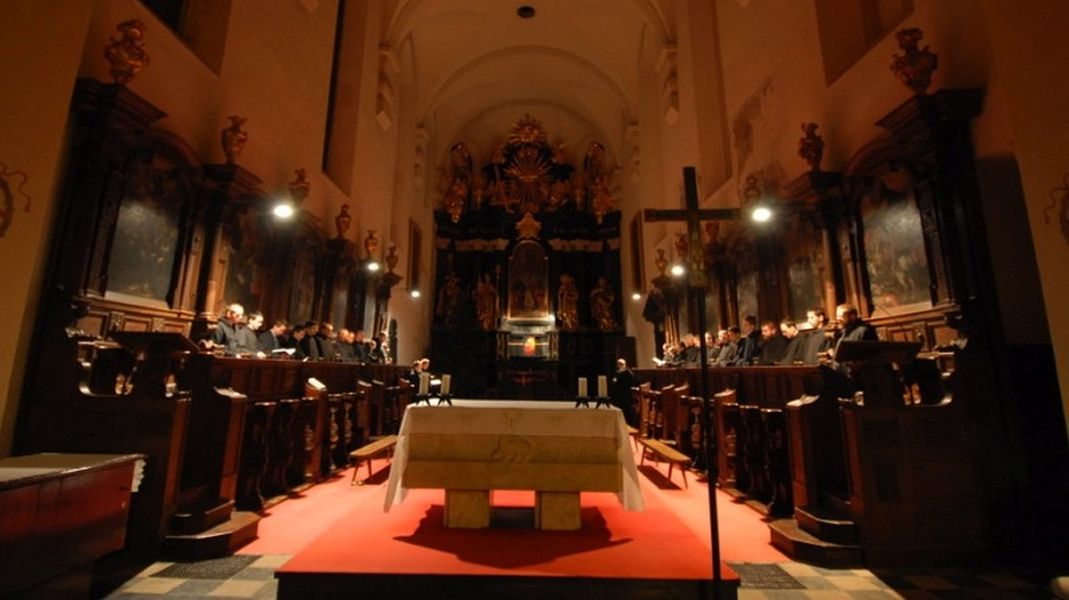 Indeed, where would it be possible to better discover Christ’s presence than in the Scriptures, since He is the Word of God, the Eternal Word made flesh? One century before Saint Yves, Guigues The Carthusian thought that reading and meditating the Word of God leads to prayer and contemplation, that is, to a mystical union with the Word. Actually, many saw Yves weeping during the long hours that he spent praying, lying on the cold and hard ground of his church or prostrated with his face hidden by his cowl. A witness to the process of canonization testified: “Very often, he sighed and moaned and I often heard him saying: My God, create on me a pure heart and renew inside of me a strong spirit.”
Indeed, where would it be possible to better discover Christ’s presence than in the Scriptures, since He is the Word of God, the Eternal Word made flesh? One century before Saint Yves, Guigues The Carthusian thought that reading and meditating the Word of God leads to prayer and contemplation, that is, to a mystical union with the Word. Actually, many saw Yves weeping during the long hours that he spent praying, lying on the cold and hard ground of his church or prostrated with his face hidden by his cowl. A witness to the process of canonization testified: “Very often, he sighed and moaned and I often heard him saying: My God, create on me a pure heart and renew inside of me a strong spirit.”
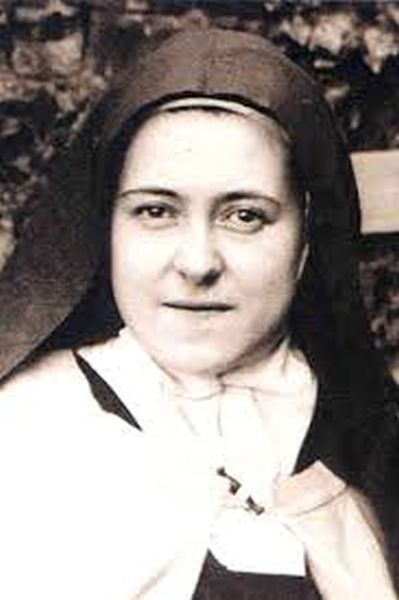 It seems that Saint Yves understood what Vatican II was to teach the irreplaceable importance of God’s Word eight centuries later. Knowing entire passages of the Scriptures by heart in order to feed our meditation helps to evangelize the deepest part of our being, such as our memory or, even, our sub conscience. For example, Saint Theresa of Lisieux wrote in her diary that she knew the Gospels and Saint Paul’s Epistles by heart. After all, we are allowed to choose by ourselves the refrains and words that dwell in our memory. Why not to choose to prefer to put in it the Word of God instead of advertising slogans?
It seems that Saint Yves understood what Vatican II was to teach the irreplaceable importance of God’s Word eight centuries later. Knowing entire passages of the Scriptures by heart in order to feed our meditation helps to evangelize the deepest part of our being, such as our memory or, even, our sub conscience. For example, Saint Theresa of Lisieux wrote in her diary that she knew the Gospels and Saint Paul’s Epistles by heart. After all, we are allowed to choose by ourselves the refrains and words that dwell in our memory. Why not to choose to prefer to put in it the Word of God instead of advertising slogans?
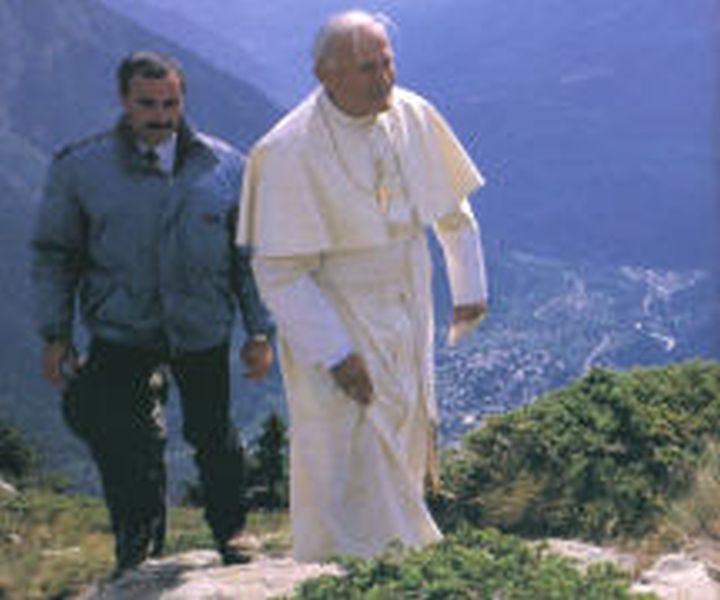 Saint Yves frequently prayed while walking for hours through the countryside. Saint John-Paul II who was a great walker was also famous for composing his encyclicals during long meditating walks. We can imagine that, exactly like the saint pastor of Ars was to write seven centuries later, “the time did not seem so long”, although both of them were exhausted, while walking through the Tregor for Saint Yves, the Bresse for Saint John Mary Vianney. Indeed, the saints teach us that praying is a privilege: it is the right that we keep, though sinners, to talk with God, which means not only to ask something but also to listen to the Creator of the universe, to the Savior of Humankind.
Saint Yves frequently prayed while walking for hours through the countryside. Saint John-Paul II who was a great walker was also famous for composing his encyclicals during long meditating walks. We can imagine that, exactly like the saint pastor of Ars was to write seven centuries later, “the time did not seem so long”, although both of them were exhausted, while walking through the Tregor for Saint Yves, the Bresse for Saint John Mary Vianney. Indeed, the saints teach us that praying is a privilege: it is the right that we keep, though sinners, to talk with God, which means not only to ask something but also to listen to the Creator of the universe, to the Savior of Humankind.
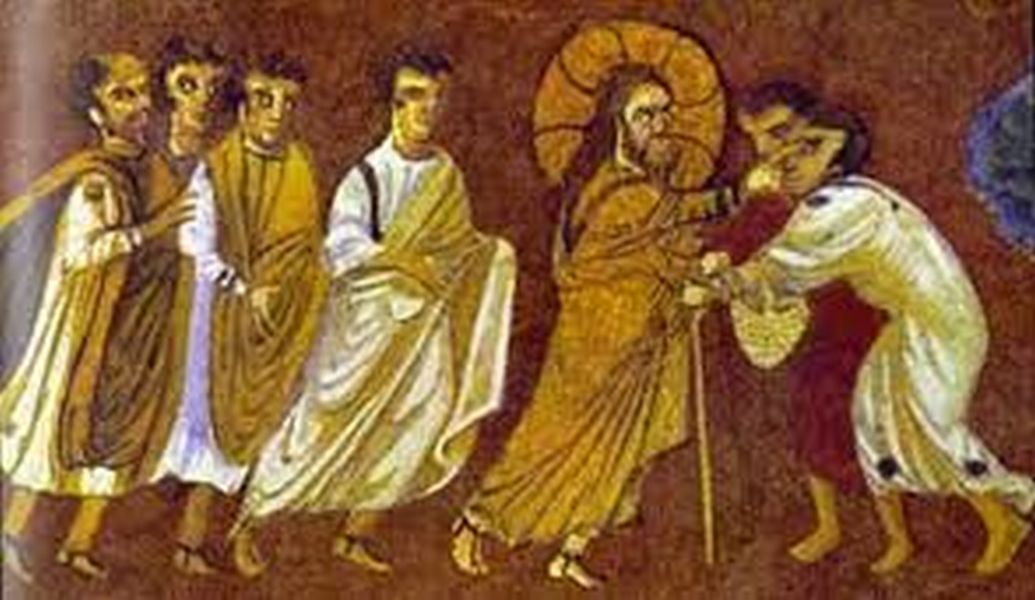 At last, of course, celebrating sacraments most certainly fulfilled Saint Yves heart as a priest. Indeed, there is a deep synergy between reading the Bible and celebrating a sacrament, which is why Vatican II ordained every celebration of sacrament to include a reading of the Scripture. Everybody knows that it is hard to learn, to study or to work without feeding one’s body; in the same way, the sacraments part is to support our spiritual life in order to help us to dedicating our spiritual intelligence to welcome and understand the biblical Revelation.
At last, of course, celebrating sacraments most certainly fulfilled Saint Yves heart as a priest. Indeed, there is a deep synergy between reading the Bible and celebrating a sacrament, which is why Vatican II ordained every celebration of sacrament to include a reading of the Scripture. Everybody knows that it is hard to learn, to study or to work without feeding one’s body; in the same way, the sacraments part is to support our spiritual life in order to help us to dedicating our spiritual intelligence to welcome and understand the biblical Revelation.
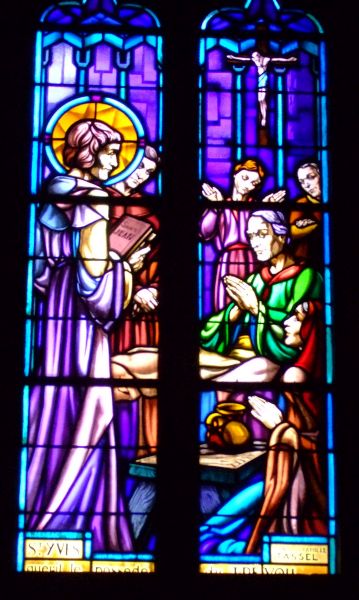 Several witnesses attest that Yves had to be completely exhausted or ill to give up celebrating the daily mass: it was not very common at that time. He also attended confessions very regularly: on the eve of his death, he wanted to hear one of his regular penitents, in spite of his colleagues who urged him to rest. He was to die a few hours latter. He was also often seen visiting the sick, as soon as he became aware of their illness. He brought them communion as he always kept consecrated hosts with him in a little silver box. One day he was asked to visit someone and although very tired; a witness said that Saint Yves answered: “If I refused to go and visit this ill person, I would be disobeying God.”
Several witnesses attest that Yves had to be completely exhausted or ill to give up celebrating the daily mass: it was not very common at that time. He also attended confessions very regularly: on the eve of his death, he wanted to hear one of his regular penitents, in spite of his colleagues who urged him to rest. He was to die a few hours latter. He was also often seen visiting the sick, as soon as he became aware of their illness. He brought them communion as he always kept consecrated hosts with him in a little silver box. One day he was asked to visit someone and although very tired; a witness said that Saint Yves answered: “If I refused to go and visit this ill person, I would be disobeying God.”
